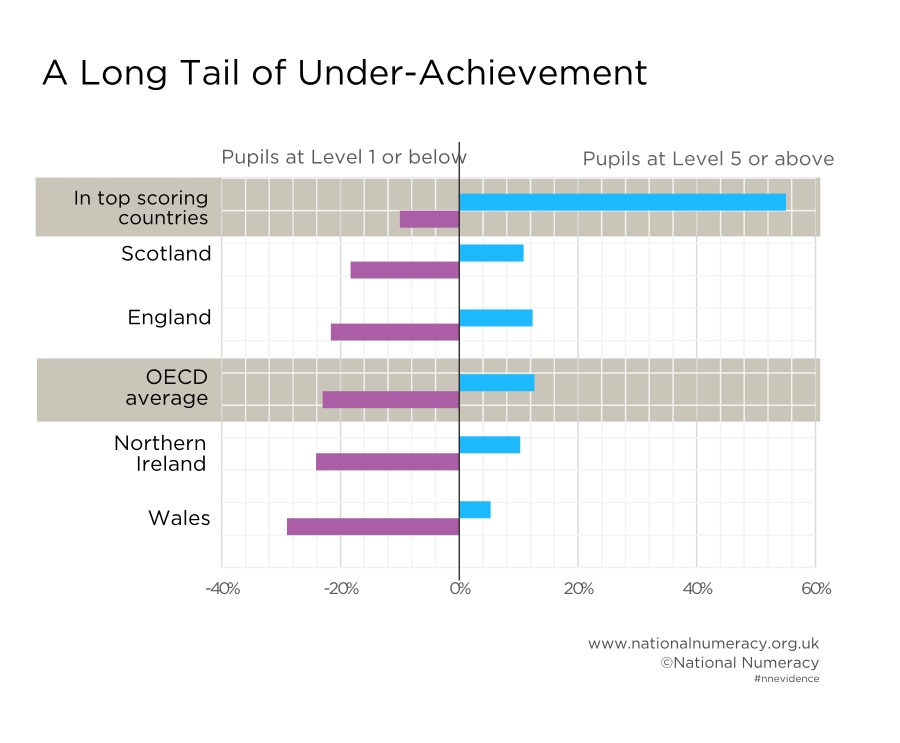European countries which outperform the UK include the Netherlands, Switzerland, Finland, Poland and Germany.

Focusing on 15 and 16-year-olds the Programme for International Student Assessment (PISA) survey is carried out every three years. The results are based on tests taken by over half a million students in 65 countries or economic regions. In 2014 all parts of the UK took part and the emphasis was on maths. The OECD says the tests are not directly linked to the school curriculum but are designed to show how well students can apply their knowledge to real life.
The findings are significant not just for the international rankings but for what they reveal about different education systems and individuals’ and societies’ attitudes to education and maths. Andreas Schleicher, the OECD’s special adviser on education policy, says that what distinguishes the high performing Asian countries is their commitment to the belief that all children can achieve highly.
The data also shows that children in these countries believe in their own potential for success, that teaching emphasises secure understanding of mathematical concepts and that education systems prioritise investment in teacher quality and training but at the same time encourage teacher autonomy and collaboration.





